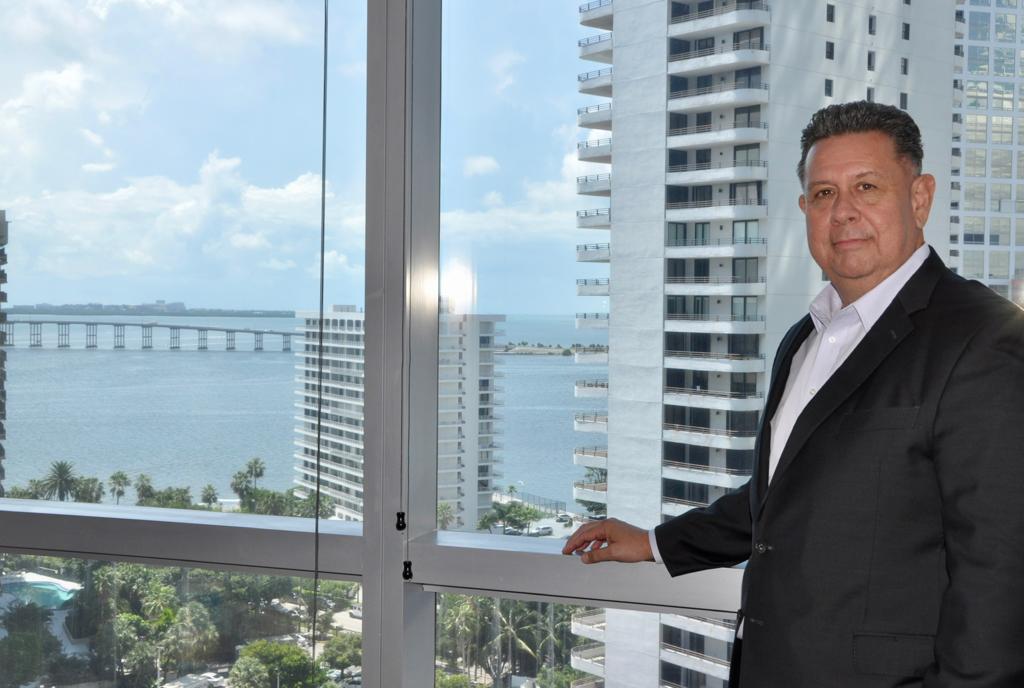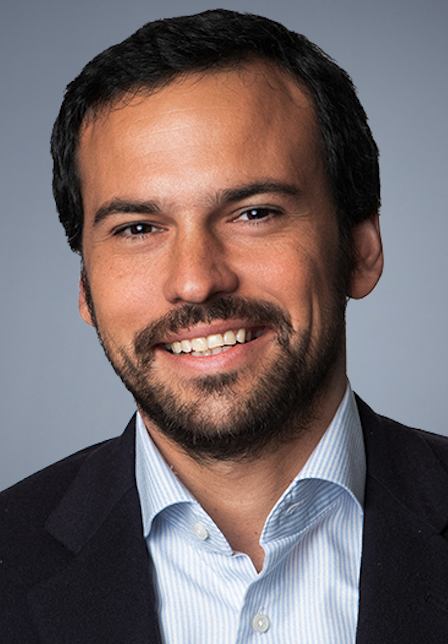2023 is a year of milestones and celebrations for L. José Corena, Managing Director of MFS Investment Management for the Americas. He will be celebrating 25 years with the firm; MFS will soon celebrate its 100th anniversary; and September 21st has been the official opening of the MFS Miami office, from where Corena and his team will serve MFS clients in Miami, Mexico, the Caribbean, Colombia, and the southwestern United States (Texas, Arizona, and Southern California).
This opening, says Corena, is the culmination of the asset manager’s efforts to strengthen its presence in the Americas, further demonstrating its commitment to collaboration and growth across its distribution footprint. Consider, last year, it opened an office in Montevideo adding to an existing office in Santiago de Chile which opened nearly a decade ago. Additionally, MFS has a representative office in Colombia and an investment office in Sao Paulo, Brazil.
As for Mexico, Corena explains that the company is hard at work and formulating its next steps. However, he hints that there could be more updates “shortly”. “Mexico is a large, unique, and complex market given its idiosyncrasies, but it provides an excellent opportunity for active global managers like MFS.
In relation to the Americas institutional business, the MFS executive clarifies that business emanates primarily from AFPs, AFOREs, insurance and re-insurance cos., family offices and selective local opportunities in key regions. While not currently working with any third-party distributors in the Americas to cover these segments, MFS has had relationships in the past. “We know the institutional segment provides a great opportunity for us to continue to build on our overall competitive market share in the region. We have done a lot of work recently and are evaluating how to best penetrate, service and support these key segments” he notes.
Trends in the Offshore Industry
“Opportunity” is a frequent word in Corena’s conversation with Funds Society. The head of the Americas sees an opportunity in the shift in the way business is done in the Non US Cross Border market, as the number of asset managers continues to proliferate, the distribution model continues to evolve and the independent model gradually takes over: “It’s extremely important for us that the business continues to grow and evolve during this post-Covid world, and that it continues to do so in a diversified way, both from a distribution and product offering perspective”.
Regarding how the distribution model has evolved, Corena says, “It’s definitely more complex right now given how the independent model has taken centre stage. You can imagine, contrary to the past, instead of going to one distributor / company to visit 20 financial advisors, as an example, today it has shifted to having to go to, potentially, to twenty different places and see these same financial advisors (FAs). One can easily see the challenges this poses. That said, the independent model has proven to be dynamic. It provides the financial advisor a great deal of flexibility and ownership of their business. While this can create more distribution challenges, we feel MFS is uniquely qualified to support clients who adopt this model.”
Another trend Corena sees is the general flow of business toward clean asset classes: “The largest distributors are definitely moving the needle towards the ‘fee-based’ business model , which I firmly believe is the right approach long term, as it benefits the overall client/advisor relationship ,” he says.
Corena points out that “transparency is also on the side of the client”, who now has more access than ever to see what they’re paying for an advisor’s services and for their mutual funds, as well as comparing fees and services with the competition and giving them the ability to evaluate the best value proposition for their financial situation. “Looking at big-picture trends today, we are definitely seeing a trend towards fee-based models with an emphasis on institutional share classes combined with retail A shares”, he explains. The MFS executive adds that “as the younger generation of financial advisors continues to grow in the business, they will definitely be more inclined to adopt the fee-based advisory model to their practice,” but he is also witnessing adaptation to this model among advisors who have been in business for a long time. The more experienced cohort is aiming towards building partnerships and teams in order to grow their overall business in a more sustainable, long-term manner. However, Corena concedes that there is a part of the business “that is going to continue to be transactional in nature and will not find its way to an advisory model”.
Another opportunity, he believes, is also changing the distribution model in the industry: “By going independent, we’ve seen many of these FAs joining advisory platforms, retooling their business and approach, and tailoring their practice to fit their client needs. The independent model provides them the freedom to pursue more clients and provide more flexibility. The beauty is that as these teams grow within the independent channel it allows for the creation of specialized sub-teams with part of the team focused on handling the purely transactional needs of clients, while another part of the team focuses on building their business through an intergenerational lenses, where clearly an advisory fee based model is optimal”.
Product Trends
The change in the way the Non-US Cross Border industry does business is, of course, also being driven by the levels in interest rates not seen in the last two decades. “This is an important message to convey to our clients”, Corena says, especially since many have not experienced a period of aggressively rising interest rates like the current one. Corena states that “what worked over the last two decades will definitely not work today or going forward, given this new normal.” Having said that, Corena makes it clear that he believes “it is important and healthy that we get rates back to historically normal levels, because the low-rate environment over the last 10-15 years has been quite atypical.
Another message that Corena believes is important to convey to clients is that while the market selloff last year was historically harsh and has altered the historical performance of many investment products, it is important we accept the fact that volatility will remain for some time. But he notes, “the other side of that coin” is all the repricing has led to an abundance of opportunities that are available to investors now in the fixed income market.
“So far in 2023, we have seen actively managed strategies experience inflows across both its fixed income and equity strategies”, he says.
Corena highlighted the importance of the role active management will have in this new market environment. He makes it clear that he is not against passive management but feels that the current environment will favour experienced and highly skilled active managers: “Looking at where we are and the environment, we’re in, selectivity will be key. At the end of the day, if you are a responsible long-term wealth manager, active management plays a vital part in the overall portfolio and can complement passive exposure.”
Another topic that comes up is investors’ growing interest in alternative investments. “Alts” as an asset class that has attracted a lot of interest and inflows over the past twelve to twenty-four months. But Corena is clear: “MFS has no plans to launch private credit or private equity products. Our responsibility is to create long term value for our clients by allocating capital in a responsible and disciplined manner. We will continue to assess where the best opportunities to fill gaps within our product line and do so thoughtfully and methodically.
While he admits that Alternatives are “an interesting asset class,” he is a bit concerned about their growing ‘commoditized’ popularity: ” Investing in alternatives is not for everyone, given their unique structure and the lack of daily liquidity some of these products have. To that end I feel they have a place as part of a well-diversified portfolio and clients should come prepared to ask really difficult questions to ensure they fully understand the risks associated with alternatives, and really any investment opportunity before them.”




 By Fórmate a Fondo
By Fórmate a Fondo